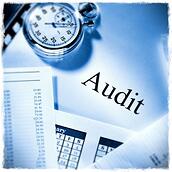 The audit is a misunderstood tool that provides vital information--if you know the right questions to ask. Are you getting the most benefit from your annual financial audit? What questions should a board member be asking?
The audit is a misunderstood tool that provides vital information--if you know the right questions to ask. Are you getting the most benefit from your annual financial audit? What questions should a board member be asking?
Some accrediting agencies require an annual audit, and sometimes one is required for compliance with the school's loan covenants. Even if it isn't mandated, an annual audit is a best practice that is highly recommended to protect board members and the administrators from significant liability risks.
Each year you have hundreds of thousands, or even millions, of dollars flowing through your school's business office and bank accounts. Your CFO/business manager and Finance Committee Chair in some way oversee all of these transactions, but the entire board is ultimately responsible to ensure that all money is being managed properly and that temptations for unethical behavior are minimized.
Reality Check
Last week I met with a new school board chair as we prepared for an upcoming board retreat that we are hosting for them. Relationship building is one of the primary goals for such a special gathering, but governance training and goal setting is also important to incorporate. We reviewed the retreat agenda that was collaboratively developed with the board's leadership and the administration to make sure we had aligned our expectations and could achieve the best results.
During our dialogue I mentioned that the board training would include a review of the fiduciary responsibilities of the each board member, especially the chair. He seemed a bit surprised to learn that he has specific points of accountability to the Internal Revenue Service (IRS) as well as to the Secretary of State for his state and to the accrediting agencies for the school. Not knowing about these responsibilities is unnecessary risk, so we reviewed these areas of responsibility to make sure we were aligned in our expectations.
Ten Questions to Ask the Auditor
When an audit is conducted, three key reports are generated:
1. The Independent Auditor's Report
2. The Statement of Basic Financials
3. Notes to the Financial Statements
This 3-part report should be presented directly to the school board, without the interpretation or influence of the administration. But then what? What questions should a "non-accountant" or even number-phobic member of the board ask in order to properly fulfill their duties? Sitting quietly and nodding occasionally may work for some, but the genuinely engaged board member wants to understand this information and achieve the purpose of the audit.
We asked the tax and audit experts at HA&W to help us with this challenge, so Sheldon Zimmerman and Justin Elanjian crafted a guide entitled,
"10 Questions to Ask in Response to your School’s
Audit and Financial Statements."
Audit and Financial Statements."
Click Here to download this free professional development tool for your board. You can share and discuss these questions with your board members in order to build their confidence and trust. Knowing how to properly utilize the data from a financial audit will strengthen your school's leadership culture and confirm your narrative of wise financial stewardship.


